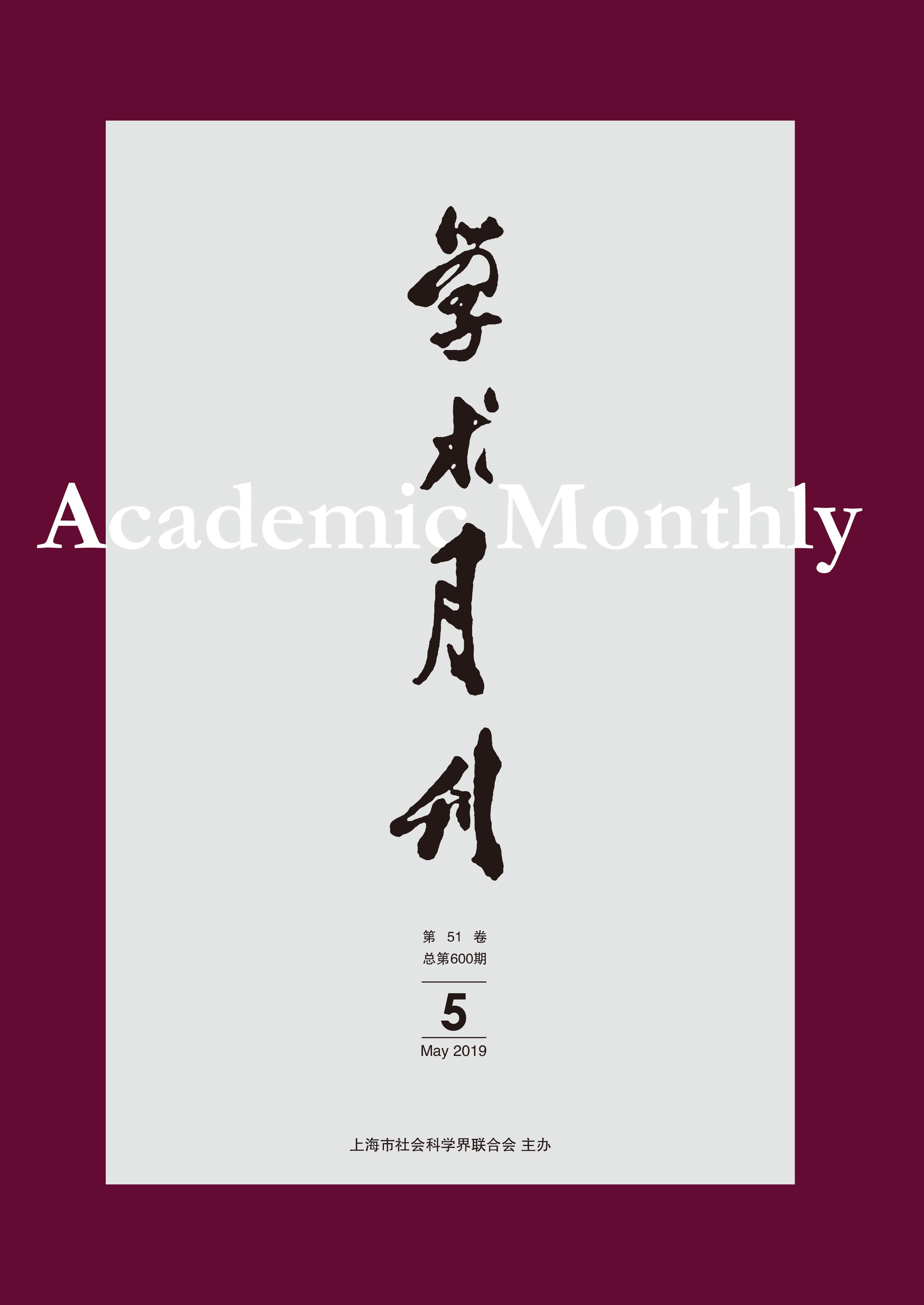Citation:
Shugong ZHAO. Wang Guowei’s Guya Theory and the Thoughts on Literary Talent in Ancient China[J]. Academic Monthly, 2019, 51(5): 136-144, 124.

Wang Guowei’s Guya Theory and the Thoughts on Literary Talent in Ancient China
-
Abstract
Guya (" 古雅”) is a conception from Wang Guowei, he created this conception for investigating the aesthetic values of non-genius creation in ancient China. And the relevant theories present some contradictions. On the one hand, guya theory reflect the profound influence of relationship between nature and human beings in ancient Chinese literary thoughts. This theory accurately grasp the impossible of study in literary and artistic creation. On the other hand, guya also introduces the connotation of Western superman theory into the concept of genius. Through the distinction between genius, genius creation and non-genius, non-genius creation, taking shape of the nature and human being’s opposite surface from " beauty arts” and " not real beauty arts”. This theory blurs the general knowledge of talent limit in ancient Chinese literary talent thoughts. For one thing, this theory emphasized guya could rely on manpower. For another thing, guya also revealed it is really hard to reach the tendency if someone has no certain creation talent. These contradictions are derived from the author’s general understanding of Kant’s theory of genius and used Schopenhauer’s genius theory to explain Kant’s genius, and derived from he did not make a distinction between western concept of genius and literary talent, nature, natural endowment and some inherent concepts of the circumstances of mandatory interpretation in our country. The discussion maybe have some bias, but the methodology is also an important enlightenment to help us make cultural construction.
-

-
References
-
Access
-
-
[1]
Jing ZHANG
. The Influence of Benveniste’s Linguistic Thoughts on Roland Barthes’ “Writing” Theme. Academic Monthly,
2022, 54(9): 171-182.
-
[2]
,
. . Academic Monthly,
2018, 50(01): 63-77.
-
[3]
. . Academic Monthly,
2016, 48(04): 84-90.
-
[4]
. . Academic Monthly,
2016, 48(10): 91-98.
-
[5]
Yonghua LIU
, Yufan SUN
. The Structure of Relational Presentism. Academic Monthly,
2023, 55(3): 126-139.
-
[6]
WANG Xiaochao
. . Academic Monthly,
2018, 50(6): 15-21.
-
[7]
LIU Daosheng
. The Grassroots Administration and Officialgentry Relationship of Huizhou in Early Qing Dynasty. Academic Monthly,
2023, 55(7): 190-203.
-
[8]
Xinghua TAO
, Duoming YI
. “Iron Man of Long” An Weijun and the Ching-liu Politics of Late Qing Dynasty. Academic Monthly,
2022, 54(7): 204-216.
-
[9]
Peng ZHAO
, Yaowen XIE
. The Ethical Dimension of Science-Technology Governance and Its Legalization. Academic Monthly,
2022, 54(8): 91-104.
-
[10]
Jing XIE
. Grounds of Criminal Penalty between Confucianism and Legalism: The Ancient, Modern, Chinese and Western Dimensions of Penalty for Theft in the Qing Code. Academic Monthly,
2019, 51(8): 106-121.
-
[11]
TAO Dongfeng
. . Academic Monthly,
2018, 50(7): 133-141.
-
[12]
Pianpian WEI
. The Three-dimensional Virtual Technique and Its Application in Historical Study. Academic Monthly,
2022, 54(9): 192-200.
-
[13]
Feng LUO
. On the Origin of the CPC’s Thoughts of Governance of China. Academic Monthly,
2021, 53(6): 108-120.
-
[14]
. . Academic Monthly,
2020, 52(3): 50-53.
-
[15]
. . Academic Monthly,
2017, 49(12): 122-133.
-
[16]
LIU Xunlian
. Nature,Fortune and Institutionalized Virtue—— Reexamination of Machiavelli’s Theory of Fortune and Virtue. Academic Monthly,
2024, 56(1): 81-91.
-
[17]
ZHANG Yibing
. . Academic Monthly,
2018, 50(6): 5-14.
-
[18]
. . Academic Monthly,
2022, 54(6): 24-29.
-
[19]
YU Keping
. On the Collective-Individual Relationship in Traditional China through the Lens of Collective Punishment. Academic Monthly,
2023, 55(5): 65-82.
-
[20]
Shaoqing HUANG
, Siyi PAN
, Hao SHI
. Anti-Corruption, Transformation of Government-Business Relationships and Firm Performance. Academic Monthly,
2018, 50(12): 25-40.
-
-



 沪公网安备 31010102003103号
沪公网安备 31010102003103号 DownLoad:
DownLoad: